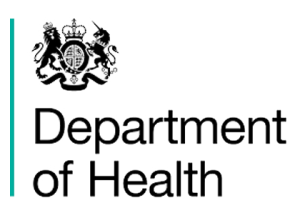Independent Review of the Effects of Alcohol Pricing and Promotion
Reports commissioned by the Department of Health to investigate the effects of pricing and promotion on alcohol consumption and related harm in the UK.
Introduction
In 2008 and 2009, the Department of Health published a two-part independent review by the University of Sheffield which aimed to better understand the link between alcohol related harm and how alcohol is promoted and priced.
Findings from these reports have been used by senior decision making bodies, including the Parliamentary Health Select Committee, Chief Medical Officer and WHO Alcohol Strategy group, to inform UK and international policy.
Building on the 2008 and 2009 reports, in 2011 we conducted a further review commissioned by the Home Office which updated and explored the evidence for a direct link between alcohol price and crime, disorder and anti-social behaviour in more detail.
About the research
The primary objective of our research was to provide answers to key questions about the relationship between alcohol promotions including pricing, level of consumption, alcohol-related harm and the likely social, health and economic costs and benefits of planned or potential policy interventions.
Specifically, our team was commissioned to:
- Systematically review the evidence on the link between the price and promotion of alcohol on the one hand and patterns of consumption and alcohol-related harm on the other as well as the effectiveness of related policy interventions (Phase 1)
- Indicate how the promotion and pricing of alcohol affects total alcohol intake, and patterns of consumption in groups identified as priorities by government, namely underage drinkers, young adult binge drinkers, heavy drinkers, and those on low incomes (Phase 1)
- Model the potential implications of changes to current policies, especially the impact on health, crime, and employment (Phase 2).
In Phase 1, the topic of the first report, we carried out a systematic review of the evidence base on the relationships between the various types of alcohol promotions, alcohol pricing, alcohol consumption and alcohol-related harm. Where evidence permitted, we reported separately on different types of alcohol and groups of consumers (including underage drinkers, young adult binge drinkers, heavy drinkers and those on low incomes). Harms were defined widely and included health, social and crime-related harms on individuals and communities.
In Phase 2, based on the findings of the review, available data and current government priorities, we selected a number of policy alternatives and modelled their differential impact on alcohol consumption and alcohol-related harms. Where possible, we modelled the effects of policy changes on the identified priority groups. The model provided a decision making tool, enabling policy makers to answer what-if questions, to predict the likely downstream impact of different policy scenarios and to identify areas of uncertainty and research priorities for different policy options.
Key project information

These reports were commissioned by the Department for Health.
Dates
Reports published 2008 and 2009
Principal investigators
Professor Petra Meier
Institutions involved
University of Sheffield
University of Victoria, Canada
Key contacts
Reports
Booth A, Meier P, Stockwell T, Sutton A, Wilkinson A, Wong R, Brennan A, O'Reilly D, Purshouse R, Taylor K (2008) Independent Review of the Effects of Alcohol Pricing and Promotion: Part A Systematic Reviews University of Sheffield report for the Department of Health
Brennan A, Purshouse R, Taylor K, Rafia R, Booth A, O'Reilly D, Stockwell T, Sutton A, Wilkinson A, Wong R, Meier P (2009) Independent Review of the Effects of Alcohol Pricing and Promotion: Part B Modelling the Potential Impact of Pricing and Promotion Policies for Alcohol in England: Results from the Sheffield Alcohol Policy Model Version 2008(1-1) University of Sheffield report for the Department of Health
Booth A, Meier P, Shapland J, Wong R, Paisley S (2011) Alcohol pricing and criminal harm: a rapid evidence assessment of the published research literature University of Sheffield report for the Home Office
You might also be interested in…
-
Modelling the impact of minimum unit pricing for alcohol in Scotland
Since 2009 the Sheffield Addictions Research Group has undertaken a number of modelling projects for the Scottish Government to appraise the impact of minimum unit pricing (MUP) for alcohol.
-
Colin Angus presents on alcohol consumption and harm at national conference
SARG Senior Research Fellow Colin Angus spoke at the Managing Addictions in Primary Care conference last week.
-
EDARA
The EDARA project evaluated alcohol treatment centres including the implications for service delivery, patient benefit and harm reduction.
